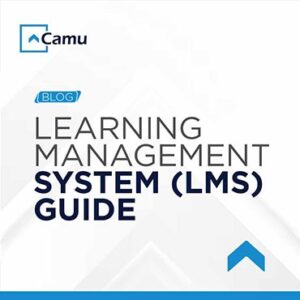
5 Ways Education ERP Software Supports Compliance and Accreditation
The fundamental goal of any educational institution is to provide quality education that helps students develop new skills, build confidence and become future-ready.
But, today the highly regulated education environment, compliance and accreditation are crucial for establishing credibility and trust with the parents as well as ensuring that institutions provide high-quality education.
However, achieving compliance might be complex and requires meticulous data management, regular audits, and adherence to industry standards. That’s where Education ERP software helps by centralizing the data and digitizing the core administrative tasks related to compliance and accreditation requirements.
ERP Software simplifies administrative tasks and helps institutes manage data and streamline communication, keeping an eye on making every part of information audit-ready.
In this blog, we’ll share 5 ways that education school management system software makes it easier to maintain high standards and keep everyone from faculty to administration on the same page.
1. Streamline Data Management
An education management information system acts as a robust hub to streamline data management by centralizing various administrative tasks, including school enrollment, academic scheduling, and faculty management, into a single platform.
The integration helps to reduce manual data entry, minimizing errors, and ensuring the information is easily accessible by authorized personnel. Moreover, by automating processes such as attendance tracking and grading improves efficiency and accuracy.
Further, Campus Management Software offers real-time analytics and reporting capabilities that offer meaningful insights to support strategic decisions.
The platform comes with built-in communication tools, which facilitate seamless interactions between students, faculty, and staff. The connectivity enables them to share information, build trust, and promote a collaborative environment, helping students with holistic development.
2. Efficiency Reporting Automation
When it comes to compliance, institutes need to manage endless paperwork. Accreditation bodies often require detailed reports on student demographics, faculty ratios, financial records, results, and more.
Creating these reports manually consumes a lot of time and can lead to costs due to manual errors. Education ERP software provides a centralized data management system by consolidating information from multiple campuses into a single platform.
The centralization of information ensures consistent and accurate data across all units, creating a solid foundation for efficient reporting. The automated reporting tools generate comprehensive reports on various operational aspects.
Moreover, it offers real-time data analytics, enabling administrators and educators to make data-driven decisions. It also generates customizable report formats that are tailored to the unique needs of the institutes.
3. Ongoing Monitoring of Standards
Accreditation is not a one-time event; institutes must continuously meet specific standards to retain their accredited status. ERP higher education systems help institutions keep track of compliance metrics and monitor performance against the accreditation standards.
The in-built monitoring tools provide real-time alerts and notifications when compliance-related metrics fall out of range. For example, if a certain program needs to meet specific teacher-student ratios, the ERP software sends an alert notification if ratios fall out.
Beyond simple metrics, ERP systems can track complex requirements and offer dashboards that visualize these metrics. The software simplifies documentation, providing digital records that are accessible for the review process.
The customizable workflows align with specific accreditation requirements, making it easier for institutes to adapt the software to their specific needs even while aligning with accreditation requirements.
4. Enhance Communication & Collaboration
Educational ERP systems significantly enhance communication and collaboration within educational institutions, crucial to maintaining compliance and achieving accreditation.
The system provides integrated platforms that facilitate seamless interactions among administrators, teachers, students, and parents that help to stay up-to-date on compliance requirements, deadlines, and progress.
With integrated messaging and notifications, the faculty and administrators stay in the loop to inform about upcoming audits or document submissions.
For example, if some data that is required for accreditation reports needs to be reviewed, the system sends a notification, facilitating timely collaboration. The central hub reduces miscommunication and promotes team collaboration, making compliance efforts smoother and more efficient.
5. Audit Readiness
ERP systems centralize and automate data management, This streamlines the collection, organization, and analysis of critical information related to academic functions.
The comprehensive data handling ensures that all necessary records are accurate, up-to-date, and readily accessible, facilitating thorough and efficient audits.
Moreover, the Education ERP Software enhances decision-making by offering real-time insights and analytics. Administrators can monitor key performance indicators and track progress toward compliance goals.
Implementing ERP systems streamlines the auditing process, enhances efficiency, simplifies compliance with regulatory standards, and bolsters the institute’s credibility.
Conclusion
Education ERP software is invaluable for institutions working toward or maintaining accreditation.
ERP solutions take the stress out of compliance by centralizing data management, automating reports, enabling proactive monitoring of standards, enhancing communication, and ensuring audit readiness.
They allow schools and universities to focus on what they do best—providing an exceptional education—while staying aligned with regulatory requirements.Using ERP for higher education and other tools like campus management software isn’t just about checking boxes; it’s about fostering an environment of transparency, efficiency, and accountability.







